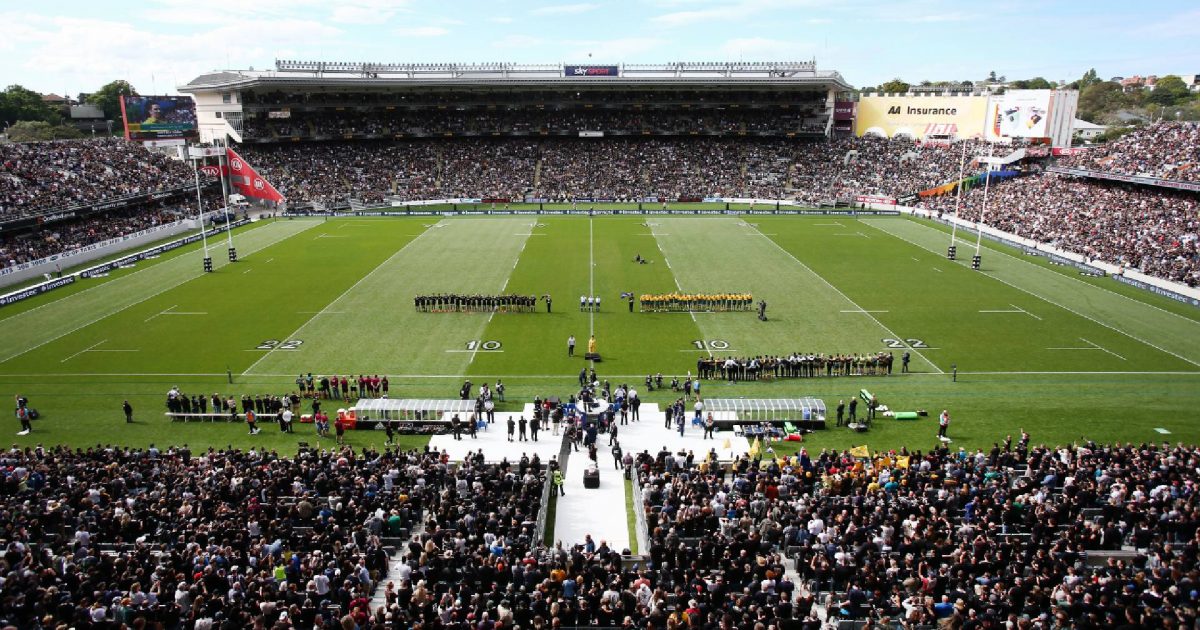The lesson the Six Nations can teach New Zealand Rugby when it comes to All Blacks tests

Sunday’s Bledisloe Cup encounter at Eden Park answered several questions and raised a few others.
Such as, for example, how did one media outlet rate Patrick Tuipulotu’s display as just a 5/10 when he was the best tight forward on the field?
But here’s one question that was answered with an emphatic YES: should we have more afternoon test footy in New Zealand?
Yours Truly had the pleasure of attending as a punter. In the NZ Barbarians clubrooms high in the North Stand, you have a superb vista of the ground. You can soak up the atmosphere, even if it’s difficult to see who is cheating in the scrums without binoculars.
Kickoff at 4pm came in bright sunlight and, with daylight savings, the game finished before 6pm in bright sunlight. Rugby people – and that is only a portion of the 46,000 on hand – loved it.
There is nothing better than an open, high stakes test match at Eden Park in warm conditions under a cloudless sky. Ask any photographer. The doyen Peter Bush always lamented the fact that night tests were not optimal for shooting prime sports photography. Eden Park’s lights are strong, but that is not always the case elsewhere.
And yet, if memory serves, this was the first afternoon All Blacks test match at the venerable ground since 1997, when they and the Springboks served up a 90-point champagne rugby bonanza.
Since then, SKY TV has favoured evening telecasts, as it claims that returns the best viewing figures. Maybe so.
There was also the claim that no one wanted to disrupt Saturday afternoon club rugby. That’s laughable. Club rugby has been sadly marginalised since well before 1995. You can easily move kickoff times in winter if you truly wanted to make afternoon international rugby happen.
But if Super Rugby Aotearoa showed us anything, other than that the usual playbooks should be thrown out the window after Covid-19, it was that the public love afternoon footy. The only caveat for Sunday test matches is that the punters cannot take full advantage of the weekend and still make it back to work on Monday with a clear head, if a little fatigued. It didn’t seem to be stop many kicking on last Sunday night and then opting to “work from home.”
The man of the hour made a major error in the build up to his test debut. #AllBlackshttps://t.co/Va1Wo4lhzP
— RugbyPass (@RugbyPass) October 21, 2020
The Six Nations invariably has afternoon kickoffs. Friday night Tests, often in Paris, are not that popular with travelling punters, who have to take a day off work. But you can always build a day (and night) around 3pm Saturday kickoffs. It’s an occasion, not just 80 minutes of code. You cannot do that when the kids don’t hit the sack until midnight after a test match, still wired from what they’ve seen go down.
In 2001, the Wallabies defeated the All Blacks at Carisbrook. That was the last time Australia won against the All Blacks in New Zealand. It was also an afternoon test. Full house, everyone happy, other than with the 23-15 scoreline.
Incredibly, we had to wait another decade before the All Blacks played afternoon rugby at home, and that kickoff time, against Canada in Wellington for Rugby World Cup, was set by World Rugby.
Last year, the All Blacks, because it suited them, hosted Tonga in Hamilton at 2.35pm on a Saturday. Fine weather, time to cut some capers. No dew on the ball, no fatigued punters who had started too early. Pity that the Ikale Tahi acted as roadkill.
There will be a balancing act for SKY when it sets the schedule for the 2021 home international season. But, in tandem with New Zealand Rugby, due consideration must be given to having one or two afternoon tests.
The players love it, the media love it, the photographers love it, and just as importantly, the fans love it.
Make it happen.














































































